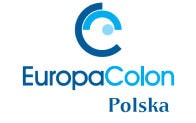Trial of Neoadjuvant Short Course IMRT Followed by Surgery and IORT for Resectable Pancreatic Cancer
NCT01372735
Interventional
Phase 1/Phase 2
Unknown status
NEOPANC
The current standard treatment for patients with primarily resectable pancreatic tumors consists of surgery followed by adjuvant chemotherapy. But even in this prognostic favourable group, long term survival is disappointing because of high local and distant failure rates. Postoperative chemoradiation has shown improved local control and overall survival compared to surgery alone but the value of additional radiation has been questioned in case of adjuvant chemotherapy. However, there remains a strong rationale for the addition of radiation therapy considering the high rates of microscopically incomplete resections after surgery. As postoperative administration of radiation therapy has some general disadvantages, neoadjuvant and intraoperative approaches theoretically offer benefits in terms of dose escalation, reduction of toxicity and patients comfort especially if hypofractionated regimens with highly conformal techniques like intensity-modulated radiation therapy are considered. Therefore the NEOPANC trial has been designed as a prospective, one armed single center study to investigate a combination of neoadjuvant short course intensity-modulated radiation therapy (5x5 Gy) in combination with surgery and intraoperative radiation therapy (15 Gy) followed by adjuvant chemotherapy according to german treatment guidelines in patients with primarily resectable pancreatic cancer. The primary objectives of the NEOPANC trial are to evaluate the general feasibility of this approach and the local recurrence rate after one year. Secondary endpoints are progression-free survival, overall survival, acute and late toxicity, postoperative morbidity and mortality and quality of life.
Aug 31,2011
All
50 Years
N/A
50 Years
N/A
46

